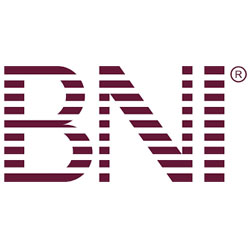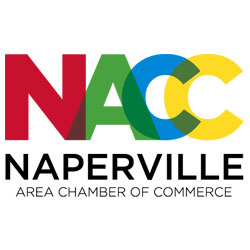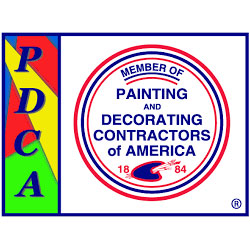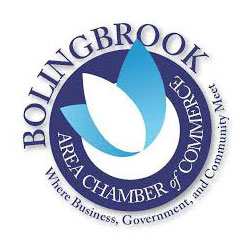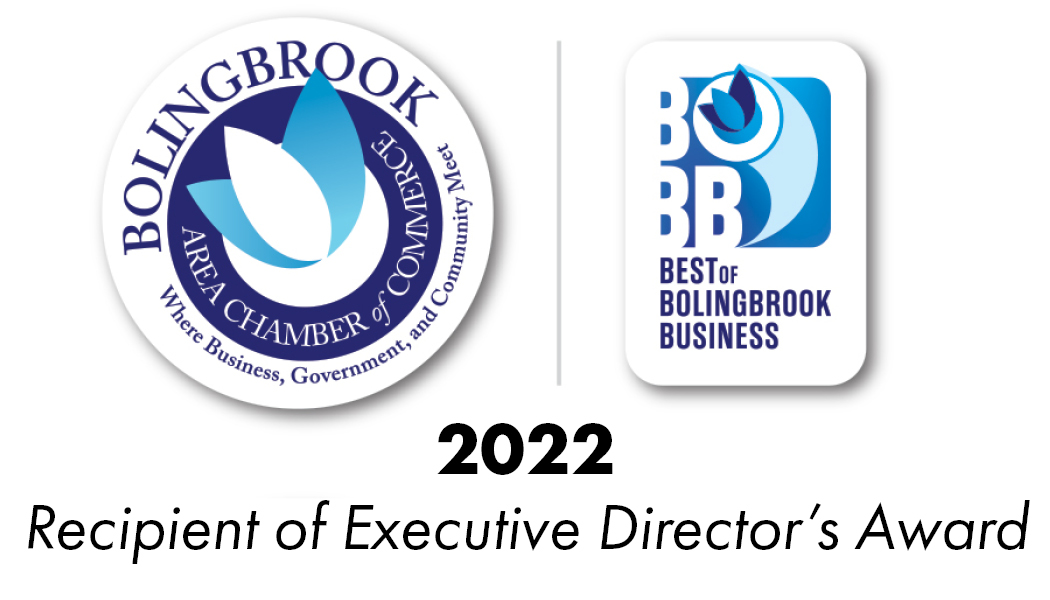Commercial Painting Companies
Home »
Mastering the Art of Transforming Commercial Spaces with Professional Painters
In the world of commercial real estate and property management, the role of commercial painting companies cannot be overstated. These specialized firms play a crucial part in maintaining, enhancing, and rejuvenating the aesthetic appeal of commercial properties. From office buildings and retail spaces to industrial facilities and warehouses, the services offered by commercial painting companies are vast and diverse. We have all pf the answers for you about these companies, shedding light on their services, benefits, and how they can contribute to the success and longevity of your commercial property investments. Whether you’re a property owner, manager, or simply curious about the world of commercial painting, we hope this helps you and becomes your definitive guide to understanding this essential industry.
What is the Difference Between a Commercial Painter and an Industrial Painter?
When it comes to the world of painting, there are various specializations, and two of the most distinct ones are commercial painters and industrial painters. While they may seem similar on the surface, these professions have significant differences in terms of job...
What is a Commercial Painter? Exploring Job Descriptions, Salaries, and More
In the world of construction and renovation, the role of a painter is often underestimated. The title "commercial painter" might seem straightforward, but the job description encompasses a wide range of responsibilities and requires a diverse skill set. In this blog,...
What Should You Look for in a Commercial Painter?
When it comes to painting, whether it's the exterior of a commercial building or the interior of a house, a good paint job can make all the difference. But what should you look for in a commercial painter to ensure the job is done right? In this blog, we'll explore...
Everything You Need to Know About Commercial Painting Companies
When it comes to transforming the aesthetics of your commercial space, there’s no one better suited for the job than commercial painting companies. These professional painters specialize in enhancing the appearance of various commercial properties, from offices to retail spaces, hotels to industrial complexes. If you’re considering a fresh coat of paint for your business premises, you’ve come to the right place.
In this comprehensive guide, we will be looking into various aspects of the commercial painting industry. Whether you’re a business owner looking to hire a commercial painter or someone interested in the industry’s dynamics, we’ve got you covered. Let’s explore the world of commercial painting companies and answer your burning questions.
Commercial Painting Companies
But first, what are commercial painting companies, and what do they do? Commercial painting companies are specialized contractors that provide professional painting services for commercial properties. They have the expertise and equipment to handle large-scale painting projects, ensuring that your business space looks its best. From interior and exterior painting to specialized coatings and finishes, these companies offer a wide range of services tailored to meet your commercial painting needs.
Now, let’s dig deeper into some of the key questions and topics related to commercial painting:
How Big Is the Commercial Painting Market?
The commercial painting market is a significant and continuously growing industry in the United States. While precise figures may vary over time, it’s possible to provide an overview based on historical trends and industry reports. In 2022, the commercial painting market in the US was estimated to be worth approximately $40 billion.
What factors contribute to the market’s growth?
Several factors contribute to the growth of the commercial painting market:
- Economic Growth: A strong and growing economy stimulates new construction and property development, increasing the demand for commercial painting services.
- Real Estate Expansion: The development of commercial properties, such as office buildings, retail spaces, hotels, and industrial complexes, fuels the demand for commercial painting.
- Renovation and Maintenance: Businesses frequently invest in the renovation and maintenance of their properties to maintain a professional and appealing appearance. This ongoing need sustains the market.
- Technological Advancements: Innovations in paint products, application techniques, and eco-friendly solutions are driving market growth.
- Environmental Regulations: Stringent environmental regulations have led to the development and adoption of eco-friendly painting solutions, creating new opportunities in the market.
Are there regional variations in demand for commercial painting services?
Yes, there are regional variations in the demand for commercial painting services. Demand depends on factors such as population density, economic activity, and local industries. Major metropolitan areas with thriving commercial sectors generally have higher demand for commercial painting services. For example, cities like New York, Los Angeles, and Chicago have a consistently high demand due to their dense commercial landscapes.
On the other hand, rural areas and regions with slower economic growth may have lower demand for commercial painting services. Additionally, climate can impact painting demand, as areas with harsh weather conditions may require more frequent repainting and maintenance.
How does the commercial painting market compare to the residential painting market?
The commercial painting market and residential painting market are distinct but interconnected. They differ in several ways:
- Scope of Projects: Commercial painting typically involves larger-scale projects, such as painting office buildings, retail spaces, and industrial facilities. Residential painting, on the other hand, focuses on homes, apartments, and smaller structures.
- Client Base: Commercial painting serves businesses and organizations, while residential painting serves individual homeowners.
- Regulations: Commercial projects often have more stringent regulatory requirements, such as safety codes and environmental standards, compared to residential projects.
- Complexity: Commercial painting may involve specialized coatings, high-rise painting, and more complex logistics compared to residential painting.
- Pricing: Commercial painting projects are generally priced differently, with factors like square footage, complexity, and project scale influencing costs.
While the two markets differ, they also overlap in some ways. Many painting companies offer both commercial and residential services, and there can be synergy in terms of equipment and personnel. Understanding the differences is crucial for both clients and professionals in the industry to ensure the right expertise is applied to each type of project.
What Is a Commercial Painter?
A commercial painter is a professional skilled in the art and science of painting commercial properties. Commercial painters are experts in enhancing the aesthetics of various non-residential structures, including office buildings, retail spaces, hotels, industrial facilities, and more. Their primary focus is on painting and finishing interior and exterior surfaces to ensure a professional, appealing, and long-lasting appearance.
What qualifications and skills do they possess?
Commercial painters possess a combination of qualifications and skills that make them proficient in their profession:
- Technical Proficiency: They have a deep understanding of painting techniques, tools, and materials. This includes knowledge of paint types, application methods, and surface preparation.
- Color and Design Knowledge: Commercial painters often have an eye for color and design, helping clients choose the right color schemes and finishes for their properties.
- Safety Training: They are trained in safety procedures, especially for projects involving high surfaces, ladders, scaffolding, and potentially hazardous materials.
- Surface Preparation: Commercial painters excel at surface preparation, including cleaning, sanding, priming, and repairing imperfections on various substrates.
- Attention to Detail: They pay close attention to details, ensuring clean lines, even coats, and a flawless finish.
- Efficiency: Commercial painters work efficiently to complete projects within deadlines, minimizing downtime for businesses.
- Communication Skills: They can effectively communicate with clients, project managers, and team members to ensure everyone is on the same page.
How can you distinguish between a professional commercial painter and an amateur?
Distinguishing between a professional commercial painter and an amateur is crucial to ensure the success of your painting project. Here are some key ways to identify a professional:
- Portfolio and References: Professionals will have a portfolio of completed projects and can provide references. Reviewing their past work and speaking with previous clients is a good way to assess their expertise.
- Licensing and Insurance: Licensed and insured painters are typically professionals. Licensing ensures they meet certain standards, and insurance protects you and the workers in case of accidents or property damage.
- Clear Contracts: Professionals provide detailed, written contracts that outline the scope of work, materials to be used, project timeline, and pricing. Amateurs may not provide such comprehensive contracts.
- Safety Practices: Professionals follow safety protocols and use appropriate safety equipment when working on commercial projects. Amateurs may take shortcuts in this regard.
- Tools and Equipment: Professionals have the necessary tools and equipment to handle the project efficiently and effectively. Amateurs may lack the equipment or may use outdated tools.
- Communication: Professionals communicate clearly, answer questions, and address concerns promptly. Amateurs may have difficulty providing clear answers or may not communicate effectively.
- Guarantees and Warranties: Professionals often offer guarantees or warranties on their work, providing peace of mind for clients. Amateurs may not offer such assurances.
The importance of hiring licensed and insured painters
Hiring licensed and insured painters is of paramount importance for several reasons:
- Quality Assurance: Licensed painters have met certain standards and demonstrated their competency, which increases the likelihood of a high-quality paint job.
- Accountability: In the event of accidents, property damage, or disputes, insurance coverage ensures that you and the workers are protected, and any necessary compensation can be provided.
- Legal Compliance: Licensed painters adhere to local regulations and building codes, reducing the risk of non-compliance issues during the project.
- Professionalism: Licensed painters are committed to their profession and are more likely to operate professionally, provide clear contracts, and meet deadlines.
- Project Completion: Licensed and insured painters are more likely to complete the project as agreed upon, reducing the risk of unfinished or abandoned projects.
When hiring commercial painters, always request proof of their licensing and insurance, and carefully review their qualifications, references, and contracts to ensure you are working with a reputable and qualified professional.
How Many Painting Companies Are in the US?
The United States boasts a diverse and competitive market for painting companies, both commercial and residential. It’s essential to understand the scale of the industry, especially if you’re looking for a local painter or considering starting your own painting business.
The number of painting companies in the US
The exact number of painting companies in the US can vary, but there are thousands of them across the country, serving both commercial and residential clients.
What are the differences between small, medium, and large commercial painting companies?
Small companies often handle local projects, while medium-sized ones may have a broader service area. Large companies, on the other hand, have the capacity for national or even international projects and often offer a wider range of specialized services.
What is the market concentration and competition in the painting industry?
The painting industry can be highly competitive, with numerous small and medium-sized companies vying for local contracts. Market concentration may vary by region, with densely populated areas often having more competition.
What are a few opportunities and challenges for new entrants in the painting business?
New entrants face opportunities in a growing market but also challenges in terms of establishing a client base, building a reputation, and competing with established firms. Success often hinges on factors like specialization, quality, pricing, and marketing strategies.
What Are the Profit Margins for Commercial Painting?
Profitability is a critical aspect of any business, and commercial painting companies are no exception. Understanding the profit margins in this industry can help you make informed decisions, whether you’re a business owner seeking painting services or an entrepreneur considering a venture into this field.
What factors influence profit margins for commercial painting?
Profit margins for commercial painting are influenced by various factors, including the scale and complexity of the project, labor and material costs, local market conditions, competition, and the efficiency of the painting company.
Typical profit margins for different types of commercial painting projects
Profit margins can vary widely depending on project size and scope. Smaller, straightforward projects may yield higher margins, while larger, complex projects might have narrower margins due to increased competition and higher overhead costs.
Strategies for maximizing profitability in a competitive market
Strategies for maximizing profitability in a competitive commercial painting market include efficient project management, cost-effective material sourcing, specialization in niche services, effective marketing, and excellent customer service to build a loyal client base.
Considerations for setting pricing as a commercial painter
Pricing considerations should account for factors such as project size, materials, labor, overhead, profit margins, and market rates. Conducting competitive research and adjusting pricing based on local demand and the unique value offered by your company is essential for setting competitive yet profitable prices.
Top Commercial Painting Companies
If you’re looking for the best in the business, it’s essential to know who the top commercial painting companies are. These industry leaders have a proven track record of excellence and can handle even the most challenging painting projects.
Top commercial painting companies in the US
Some of the top commercial painting companies in the US include Sherwin-Williams, PPG Industries, and Benjamin Moore. These companies have a strong national and international presence.
What sets these companies apart from the competition
Top commercial painting companies often distinguish themselves through their reputation for quality work, extensive experience, use of premium materials, ability to handle large-scale projects, and their portfolio of successful, high-profile projects.
How to select the right commercial painting company for your needs
To choose the right commercial painting company, consider factors such as their reputation, portfolio, experience, pricing, and customer reviews. Request quotes and references, and ensure the company’s specialization aligns with your project requirements.
Tips for hiring the right painting company for your specific requirements
When hiring a painting company, focus on their experience in your specific type of project (e.g., office space, industrial site, or retail store). Also, assess their approach to surface preparation, choice of materials, adherence to safety standards, and their ability to meet project deadlines.
How to initiate contact and discuss your project with local painters
Initiating contact with local painters is straightforward. Start by researching local companies, then reach out via phone or email to schedule an initial consultation. During this meeting, discuss your project’s scope, timeline, budget, and any specific requirements or design preferences.
Painting Franchises
Another interesting aspect of the painting industry is the presence of painting franchises. Let’s take a look at the world of franchise opportunities, their potential profitability, and what it takes to run a successful painting franchise.
What are painting franchises, and how do they operate?
Painting franchises are businesses that offer painting services under a well-established brand. Franchisees typically pay an initial fee for the right to use the brand, access training and support, and follow the franchisor’s business model. They operate within the framework provided by the franchisor, following established procedures for marketing, sales, operations, and customer service.
The advantages and disadvantages of joining a painting franchise
Advantages of joining a painting franchise include brand recognition, training and support, established systems, and marketing assistance. Disadvantages may include franchise fees and royalties, limited flexibility in decision-making, and a commitment to following the franchisor’s rules and procedures.
Success stories and case studies of profitable painting franchises
While specific case studies may vary, successful painting franchisees often highlight their ability to leverage the brand’s reputation, access a proven business model, and receive ongoing support and training. Success can be measured in terms of profitability, growth, and customer satisfaction.
Considerations for aspiring franchisees in the painting industry
Aspiring franchisees should consider factors such as the reputation and track record of the franchisor, the initial investment required, ongoing costs, the level of training and support provided, and the terms and conditions of the franchise agreement. Evaluating these factors and conducting due diligence is essential before committing to a painting franchise.
Commercial and Residential Painting
Lastly, we will explore the differences between commercial and residential painting. Understanding these distinctions can help you make the right choice when it comes to your painting project.
Commercial and residential painting: How do they differ?
Commercial painting typically involves larger-scale projects for non-residential properties, while residential painting focuses on homes and smaller structures. Commercial projects often require specialized coatings, and residential projects may involve more design-focused work.
Which type of painting company is best suited for your needs?
The choice between a commercial or residential painting company depends on your project type. For commercial projects, choose a commercial painting company with experience in handling large-scale, complex jobs. For residential projects, opt for a residential painting company that specializes in homes and smaller structures.
Project examples and scenarios where each type of painting is applicable
Examples of commercial painting projects include office buildings, warehouses, shopping centers, and industrial facilities. Residential painting projects encompass homes, apartments, and smaller structures like sheds and garages. Commercial projects may involve unique requirements, such as high-rise exterior painting or specialized coatings, whereas residential projects focus on aesthetics and personalized design.
Combining commercial and residential painting services: Is it a viable business strategy?
Combining both commercial and residential painting services can be a viable strategy for some painting companies, as it diversifies their clientele. However, it requires a versatile skill set, the ability to manage different project types, and effective marketing to target both markets. Careful planning and resource allocation are necessary for successful implementation.
In Conclusion
Commercial painting companies play a crucial role in enhancing the appearance and value of commercial properties. Whether you’re a business owner seeking top-quality painting services or someone interested in the dynamics of the industry, this guide has provided valuable insights.
We’ve covered the size and scope of the commercial painting market, the role of commercial painters, profitability factors, top companies in the field, pricing considerations, and much more. Armed with this knowledge, you can make informed decisions and navigate the world of commercial painting with confidence.
Now, take the next step and connect with a reputable commercial painting company near you. Transform your business space and leave a lasting impression on your clients and customers.
Remember, a fresh coat of paint can make all the difference in the world of business. Don’t hesitate to reach out and bring your vision to life!
Explore the possibilities of commercial and residential painting, discover the top commercial painting companies, and make informed decisions for your painting needs. Your business deserves nothing but the best!

About Jung Family Painting
Jung Family Painting & Decorating has been in the painting business for 30 plus years in the Naperville Area providing the best quality crews, paint products, and service!

About Jung Family Painting
Jung Family Painting & Decorating has been in the painting business for 30 plus years in the Naperville Area providing the best quality crews, paint products, and service!
Are you ready to get your Free Estimate for your Residential, Commercial, Managed or Community Service Property?
